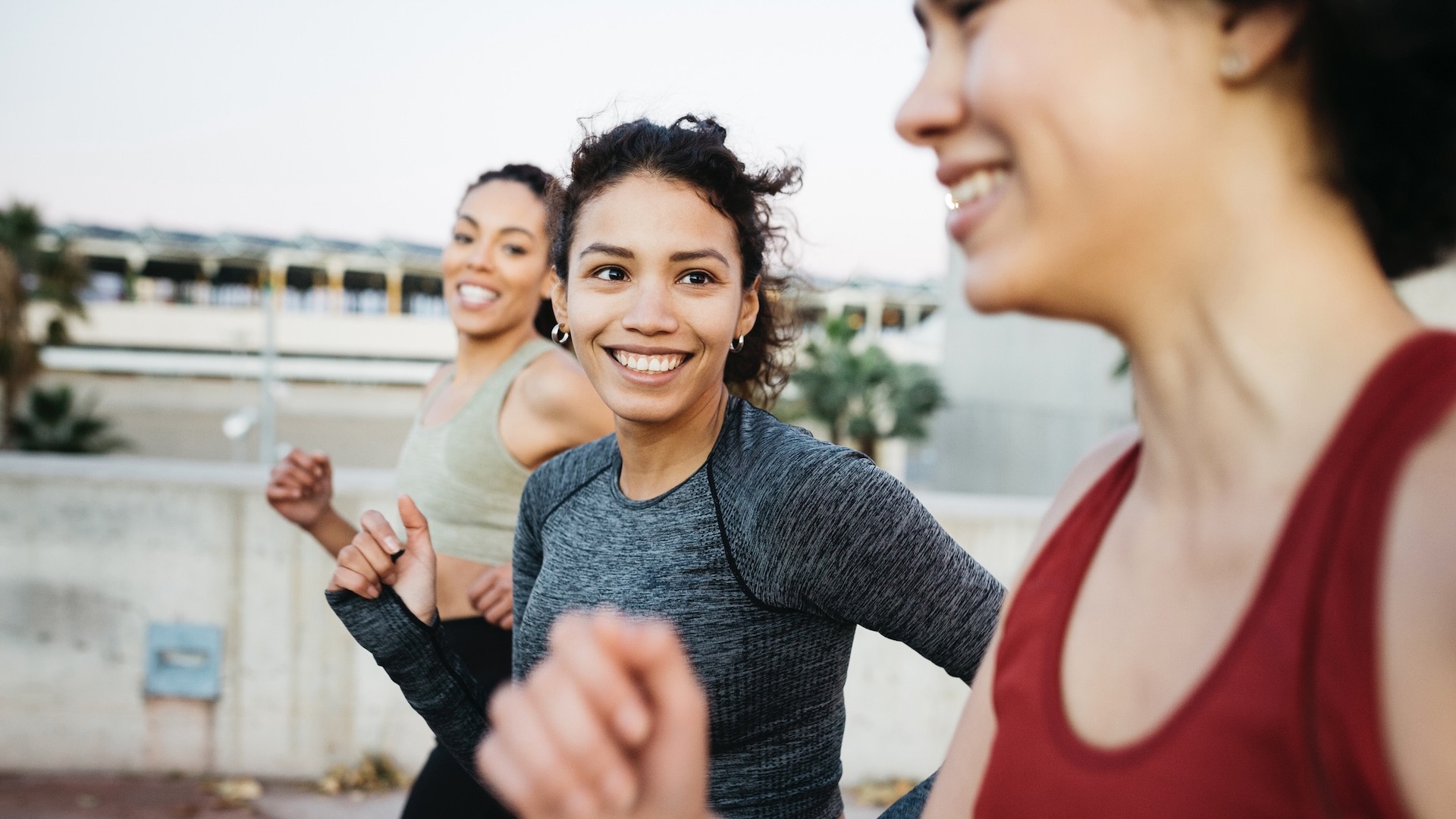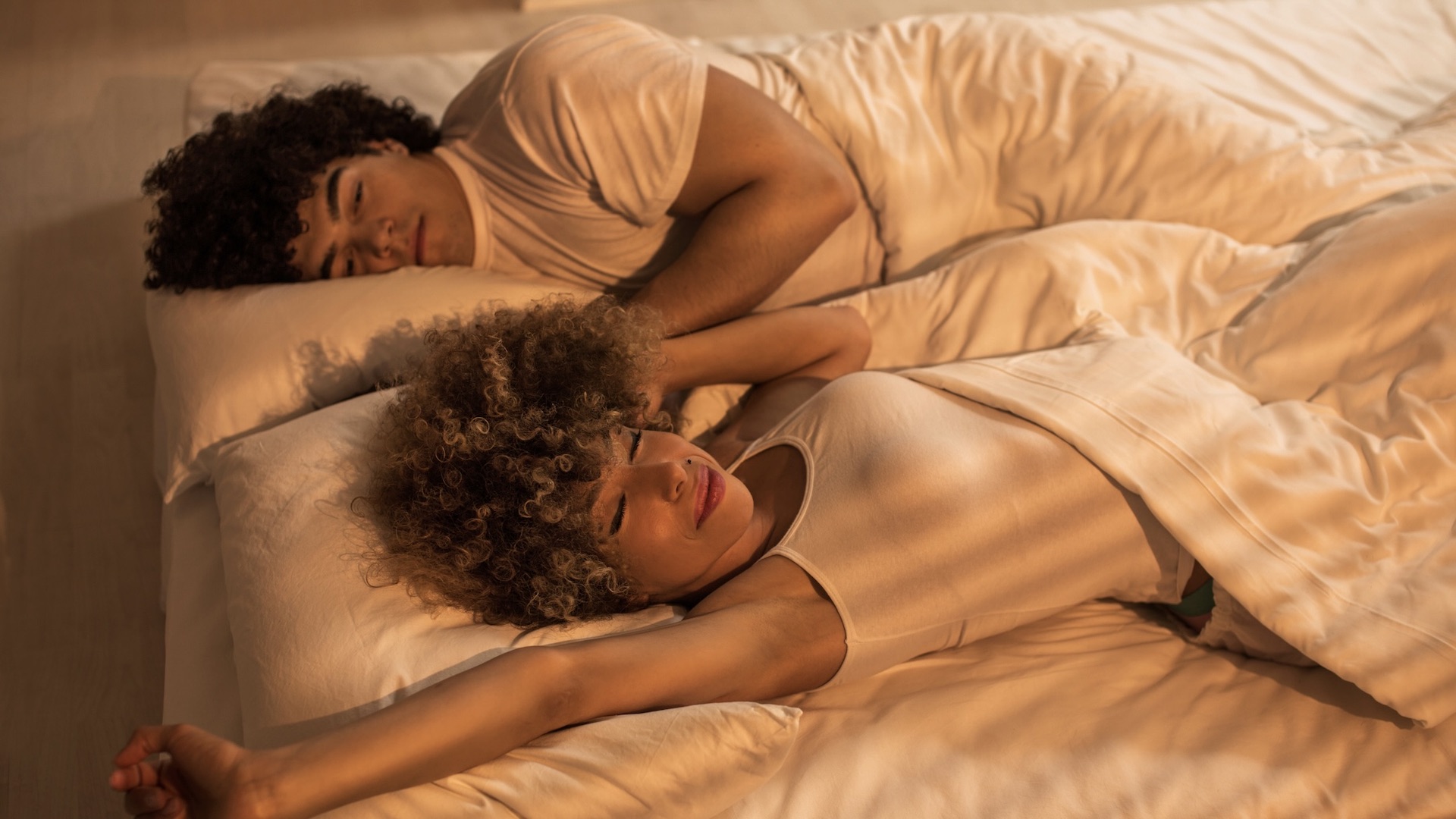
It’s well known that running provides a wide range of physical and mental health benefits. Exercise and physical activity are also believed to be a useful way to combat anxiety. We asked several experts to find out how running can help to reduce anxiety.
Alan Morton, a lead tutor and assessor at The Fitness Group, believes it's important to first understand the physiological changes of anxiety if we are to learn about why running can be beneficial for sufferers.
Mood and anxiety disorders are characterised by a variety of neuroendocrine, neurotransmitter and neuroanatomical disruptions.
“More simply put,” says Alan, “anxiety is a disruption in the normal working order of many bodily functions, but specifically the neurotransmitter and endocrine systems that regulate emotion and also importantly the fight or flight response.”
He adds: “In people with anxiety, they can be perpetually be in a state of stress – the fight or flight response – where muscle tension is increased leading to issues such as stiff and painful muscles, plus increased heart rate and blood pressure.
“Long term exposure to this may lead to heart disease, heart attacks, resting high blood pressure and stroke, sleep problems, weight gain and problems with memory and focus.”

The effect of running on anxiety
There are various studies, including one titled the Effects of Exercise and Physical Activity on Anxiety, that show that regular physical activity, such as running, can reduce anxiety symptoms.
Another study, Runners’ Anxiety and Mood on Running and Non-running Days supports the concept of the positive implication of running in health.
Gavin Cowper, an exercise expert and owner of Exersci, points to research published in the British Journal of Sports Medicine that shows that exercise is twice as effective at treating anxiety and depression as antidepressants.
”The study suggested that walking or jogging at least two to three times a week is considered the best method to improve anxiety and depression symptoms," he says.
It was also revealed that just taking antidepressants improved a person’s symptoms by 26%, while just walking or jogging improved symptoms by 63%. The research was carried out across 218 different studies with 14,170 participants, and it found that moderate reductions were made across the board with exercise, with dance being the best form ahead of walking or jogging, yoga, tai chi, and strength training, among others.
“Therefore, it’s clear that running does reduce anxiety," says Cowper.
How running reduces anxiety
Running is thought to relieve anxiety in several different ways.
Chemical release
Cowper says: “Running triggers the release of endorphins and serotonin, which are neurotransmitters that have mood-boosting effects. Endorphins act as natural painkillers, while serotonin helps regulate mood and sleep, both of which can be disrupted by anxiety.”
Stress reduction
Exercise, such as running, is a well-established stress reliever. Cowper says: “When you run, your body focuses on the physical exertion, taking your mind off worries and anxieties.”

Improved sleep
Running can improve sleep quality, which is crucial for managing anxiety. Deep sleep allows your brain to process emotions and recharge, leading to a calmer and more resilient state.
Confidence booster
Cowper also makes the point that sticking to a running routine and witnessing your progress can be incredibly empowering. He adds: “This sense of accomplishment can boost self-esteem and self-belief, which can have a positive impact on anxiety levels.”
Calming effect
Alanna Kate Derrick, a certified personal trainer, running coach, yoga teacher and endurance sports nutrition coach, adds another benefit of running for treating anxiety.
She says: “The rhythmic nature of running can be particularly calming and almost like a moving meditation that helps centre your thoughts.
“As a running coach, I often tell my clients to focus on their breath and the cadence of their feet hitting the pavement. It's a great way to bring mindfulness to anxious moments, both on and off the trail.”

Structured exercise for anxiety
Research shows that structured exercise, such as running, can trigger the sympathetic nervous system, which drives “fight or flight” response in stressful situations. But then the rewards that follow the run, such as feel-good hormones, can balance out the stressful reaction.
Derrick explains: “When we run, we get our heart rate warm and our breathing rate increases and we can see all the hallmarks of the fight or flight system.
“However, with structured exercise, at the end of the workout the brain releases the reward system hormones and endorphins, such as dopamine and serotonin, which helps deregulate the body and promote the change from stress to relaxation.
“In a controlled environment, or thanks to a structured run, we can train our brains to recognise the end of the stressful situation, which is when the run finishes, and this allows a flooding of all the feel-good hormones.
“This structured approach to training allows the body to regulate its ability to turn on and off the fight or flight system. In turn, this natural regulation can help the body recover and promote the rest and digest phase. It balances out the neurotransmitter levels that were previously reduced and allows appropriate recovery, thereby correcting the physiological changes brought about by anxiety disorders.”
How to run for reduced anxiety
Running with other people, especially friends, can be a great anxiety reliever. Chatting as you run takes your mind off anxieties and worries.
Many pet owners find that running with a dog is mood enhancing and can therefore help to alleviate anxiety.
Running on trails and in natural places is a great way to boost your mood and can help to reduce a range of mental health issues, such as anxiety. When you are enjoying great views and feeling close to nature, it follows that you will feel calmer and less anxious.
It's also a good idea to switch off your running watch and enjoy so-called naked running. It you are simply running for enjoyment, rather than running to achieve a time or pace, it's more likely that any feelings of anxiety will be reduced.
Derrick, who is also a Brazilian Jiu-Jitsu practitioner and a contributor at Gold BJJ, also reveals her thoughts on using running to overcome anxiety.
She says: “For those particularly intense anxiety days, a few tweaks to your running routine could help. Slow things down a bit and try incorporating intervals of walking to give yourself time to regulate if needed.
"Alternatively, you should opt for a scenic trail run so the beauty of nature can distract and ground you.”
She adds: “Running isn't a panacea, but consistent movement can create long-term shifts in how you handle anxiety. Think of it as building mental fitness alongside your physical fitness. Regularly lacing up gives you a healthy coping strategy and builds resilience over time.”
- The best road running shoes: our top recommendations tested and rated







